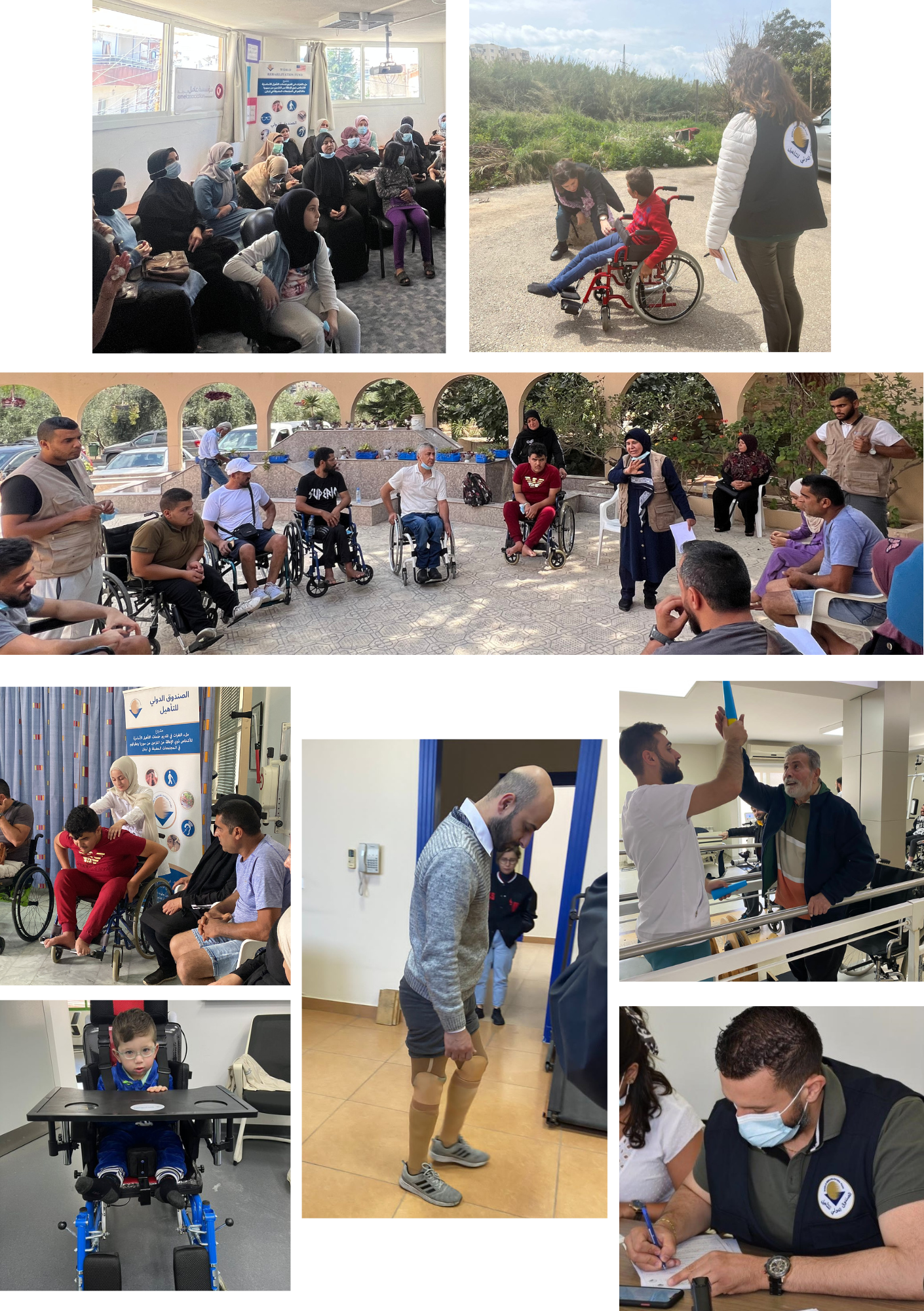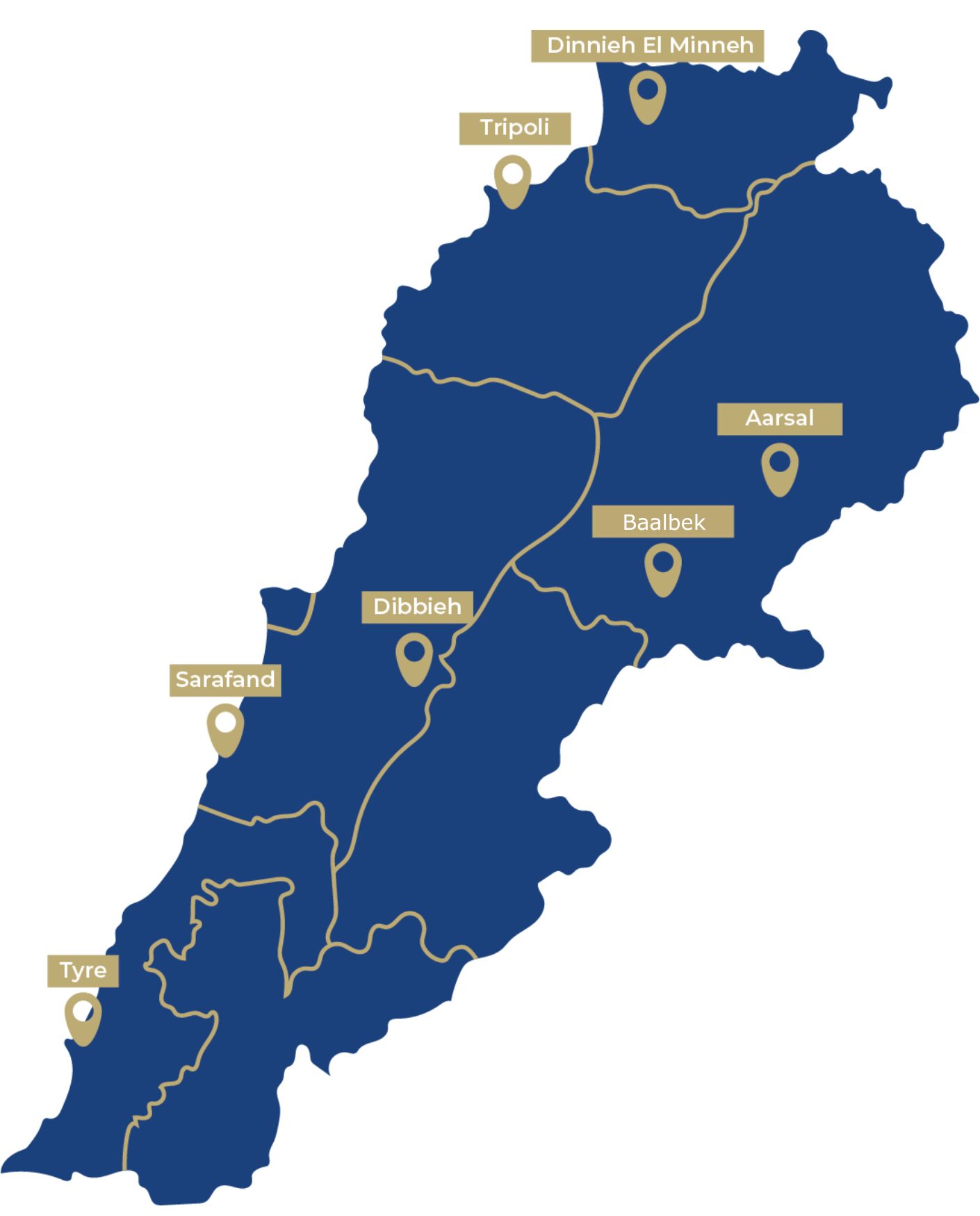Areas and Fields of Work
WRF initiated its programs in Lebanon during the early seventies, primarily focusing on capacity building activities, providing material and technical assistance to various rehabilitation institutions, and supporting the establishment and development of organizations of persons with disabilities (PWDs) and committed civil society organizations (CSOs).
Over time, WRF effectively mobilized resources, enabling the expansion of its programs and activities. This progress led to the establishment of a local office in 1987 and official registration of the organization through a decree issued by the Lebanese Council of Ministers. With the support of WRF's core staff in New York, WRF-Lebanon successfully developed sustainable, culturally and contextually appropriate initiatives that continue to address needs related to disability prevention, rehabilitation, and social integration. Through its commitment and years of experience, WRF has attained a prominent role in the disability, protection, and health sectors in Lebanon. The organization has established enduring partnerships with local and national organizations. It effectively coordinates with various stakeholders in Lebanon, including government bodies, UN agencies, INGOs, and professionals.
WRF is widely recognized for its significant roles in the relevant sectors and its dedicated advocacy efforts. WRF remains fully committed to fulfilling its mission by mobilizing resources to initiate and support interventions that effectively address the changing and developing needs of persons with disabilities and the entities that support and serve them. Additionally, WRF actively advocates for and mobilizes disability prevention initiatives and programming.
WRF is widely recognized for its significant roles in the relevant sectors and its dedicated advocacy efforts. WRF remains fully committed to fulfilling its mission by mobilizing resources to initiate and support interventions that effectively address the changing and developing needs of persons with disabilities and the entities that support and serve them. Additionally, WRF actively advocates for and mobilizes disability prevention initiatives and programming.

Current Programming in Lebanon
- Provision of basic, person-focused assistance services to Persons with Disabilities among Refugees from Syria and their peers in Lebanese host communities.
- Awareness-raising, coordination, and advocacy focusing on:
- Acknowledging and prioritizing:
- The needs and rights of persons with disabilities.
- The particular needs of the most vulnerable and hard-to-reach, and addressing the challenges associated with assisting them.
- Recognizing the value and importance of:
- Rehabilitation, inclusion, and social integration of individuals with disabilities.
- Provision of technical and material support to aid in policy formulation, ensure safe access to services, and enhance resilience, sustainability and local capabilities.
- Capacity strengthening of local organizations and human resources for a creative, responsive, committed, and contextually appropriate sustainable support system.
- Coordination and collaboration among different stakeholders to optimize resources and enhance service delivery.
- Community-Based Rehabilitation (CBR) services approaches and programming for accessible and contextually appropriate interventions.
- Providing attention, assistance, and capacity building for caregivers.
- Promoting self-reliance and self-determination, as appropriate, among individuals with disabilities.
- Alignment and coordination between local and international stakeholders.
- Preventing disabilities and their determinants.
Programs We Are Supporting
